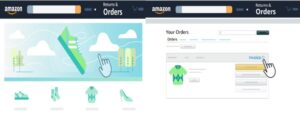How to withdraw money out of a limited company
There are a number of ways, a director can extract money from their limited company.
taking money out of a limited company in one or more ways set up a limited company. For most directors, the optimum way to minimise personal tax liabilities. It will using a combination of these methods.
- Dividends
- Salary
- Director’s loan
- Reimbursement of expenses and benefits
Dividends
The tax-free dividend allowance is currently £2,000 after limited company tax. The tax rate for dividends receive in excess of the dividend tax allowance are tax at: 7.5% for basic rate taxpayers. 32.5% for higher rate taxpayers, and 38.1% for additional rate taxpayers.
To pay a dividend, the company must:
- hold a directors’ meeting to ‘declare’ the dividend
- keep minutes of the meeting, even if there is only one director
Also, dividends can only pay if there are sufficient retain profits to cover the payment.
Salary
Directors must ensure that they works as an employee of their company. Their salary is paid via HMRC PAYE. Most directors prefer to take a smaller salary. It take a larger share of their pay in dividends. This is usually the most tax efficient method, but care needs to be taken based on individual circumstances.
The personal allowance is currently (2021-22) set at £12,570. This means, you do not have any other relevant income within the tax year. You can draw a salary up to this amount without the need to pay income tax. Remember, you have to pay National Insurance tax.
Director’s loan
A director’s loan account is create when a director (or other close family members) ‘borrows’ money from their company. Many companies, particularly ‘close’ private companies, pay for personal expenses of directors using company funds.
Usually, when directors have overdrawn loan accounts. They do not have to pay tax, as long as the sum is repaid to the company within 9 months and one day of the account’s reference date.
However, the rules are further complicate if the loan is for more than £10,000 as interest must charge. There are also further Income Tax costs if the loan is written off or ‘released’ (not repaid) by the company.
Reimbursement of expenses and benefits
Any cost that you have incurred personally which has been made ‘wholly and exclusively’ for the purpose of your business. It can claim as a legitimate business cost. Therefore, not only will your business receive tax relief on these expenses, but you will also be able to reimburse yourself personally for the cost.
These costs typically include business miles, insurance and equipment but can include any cost which was necessary. Although business expenses will not make up a large portion of your overall take-home pay. This is an additional and tax-free method which many directors find useful.


